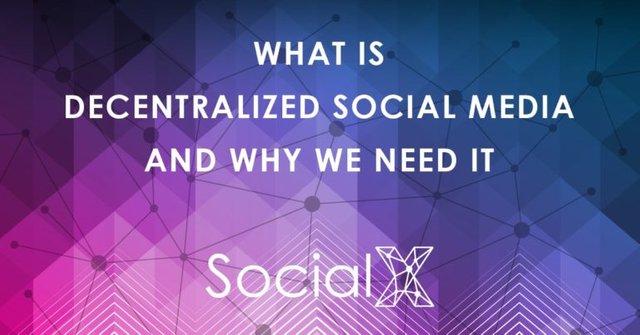Decentralized Social Media
Decentralized Social Media

Decentralized social media is the most appropriate answer to the monopolistic attitudes of modern social networking platforms. You cannot make billions of Facebook users close their accounts and switch to a new social networking platform just like that. You have to provide them with a better alternate solution, and that’s what decentralized social media aims to achieve.
A decentralized or blockchain-based social media addresses the first and the most serious issue with today’s social networks – centralization. When there is only one company storing all the data of the users and it is not accountable to anyone for what it does with that data, it can do whatever it wants without ever being answerable to anyone.
Blockchain social network decentralized the control through its distributed ledger. The data of the users is not saved on one server but many servers that are owned by people who are not connected or related to each other. That’s the best way to prevent rule from going in the hands of one entity. When you divide the rule, the Facebook-like monopoly is out of question.
Even if one of the servers/nodes tries to tinker with your data, the rest of the nodes will know it immediately. This process makes decentralized social networks foolproof.
In addition, there is no room for fake news on decentralized social media. When companies create their blockchain social networks, they come up with an entire system in which promotion of content takes place in a certain way.
Most importantly, decentralized social platforms will incentivize the creation of content. They create tokens that are exchanged on their platforms. When a content creator creates a video, image or text-only post and receives upvotes/likes on it, he/she is rewarded with those tokens. That’s something Facebook has never done for its users.
Final Thoughts
A decentralized social media platform is your best chance against today’s social networks like Facebook and Twitter. When you are so loyal to a company, the least they can do is be honest with you. Facebook has completely failed at that, and the recent events have shown that they don’t value their users. On the other hand, a decentralized system automatically gives power to the user. This can be via creation of paid content or putting an end to fake news.